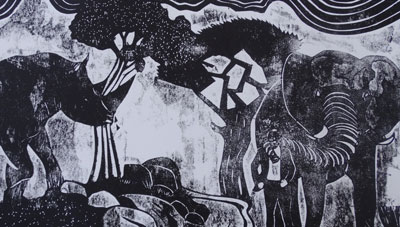
Film Review – Shanghai
Outlet: MR VIDEO, Puma Garage, Nelson Mandela Ave
Film: Shanghai
Director: Mikael Hålstrom
Writer: Hossein Amini
Photography: Benoit Delhomme
Music Klaus Badelt
Players: John Cusack; Gong Li; Chow Yun-Fat; Jeffrey Dean Morgan; David Morse; Ken Wanatabe; Hugh Bonneville
Genre: historical; spy thriller; adventure; romance
Rating: ****
This film is a gem, combining many talented actors and actresses, an innovative director, and complementary sound effects with cinematography. Shanghai, like Havana, was a city shrouded in mystery, bustling, busy in its heyday, harbouring an exotic culture and history, but, over all this hangs an air of decadence. Perhaps the two cities have nothing more in common than the fact that they were thriving capitalist enclaves but are not such anymore.
Above all, the settings in Shanghai are superb: the film is set in 1941 when the western world is very much at war and, in China, all cities except Shanghai have been taken over by the invading Japanese army. The pulse of the city is regulated by the non-stop rain which turns flagstones into black satin ribbons and washes any colour from building facades. Most of the buildings are small trading emporiums in a vaguely colonial style, with Chinese lettering on all notices. Our hero, Paul Soames (Cusack), indulges unashamedly in voiceover throughout the film; his running commentary is helpful to explain sections of the plot, since scene changes and the action move rapidly and not always in a connected manner.
The action moves from seedy back-street shopping areas, teeming with impoverished Chinese to the sophisticated interiors of the German Embassy, the baroque gilt of Great World Casino in the French sector, and the palatial homes of the wealthy. Shanghai is home to two worlds: the rich and the poor.
Despite the destruction of the Second World War in Europe and the Japanese imperialist aspirations in the East, Shanghai seems to be a city suspended in time, where the wealthy pretend that little is wrong and live very much for the moment – while the good times last. Because of the complicated political situation, however, the Germans are arrogantly assertive, the Japanese are everywhere, spying and collaborating with the Germans, while the Chinese Triad is ensuring its own survival through back-street deals and negotiations. The last
group of any significance is the Resistance Movement, which works anonymously and covertly against any further intrusion of Japanese influence.
Triangular relationships are almost thematic in the film. Perhaps the pervading air of decadence is infectious but two triangular relationships take centre stage. Soames’ arch enemy, Captain Tanaka, of Japanese secret security, talks wistfully of losing his first wife, who left him, and he wonders whether a second love as intense as the first is possible. Tanaka (Wanatabe) ponders this almost reflectively in front of Soames when they meet inadvertently in a quiet reception room at the glamorous home of Anthony Lan-Ting(Yun-Fat), head of the local Triad operations in Shanghai. A second triangular relationship is developing insidiously as he speaks: Soames is attracted to Lan-Ting’s wife, Anna (Gong Li).
To devote much time to the romantic involvements, however, does not do justice to this film. In the same way as Havana, the film charts the declining days of a free Shanghai and documents the political undercurrents which makes the city exceedingly dangerous and completely unpredictable. Soames is there to investigate the murder of his best friend, secret agent Connor (Dean Morgan), who was in the process of secretly smuggling a young lady out of Shanghai: another triangular relationship since she was the second love of Tanaka but chose to put her trust in Connor.
Soames laconically confesses in voiceover,” Like a good American I kept my head down and remained neutral.” His sentiments are echoed by the American ambassador (Morse) who claims that “Our only option is to sit back and not rock the boat. This was not Connor’s style.” Although Paul ostensibly works as a journalist with the Shanghai Herald, his real work is as an American secret intelligence agent, who spends his time scouring the streets by day and gliding round cocktail functions in a dinner jacket at night. Either way he picks up snippets of intelligence. He tells Anna, “I like secrets; I collect them.” She does, too.
Soames’ objective is a race against time: the Japanese army is encroaching and all are in daily expectation of its invasion; Soames and Tanaka have the same objective, albeit for differing reasons. Soames somewhat dishonourably forms a liaison with the German ambassador’s wife and, at the first opportunity, rifles through the ambassador’s desk in the middle of the night to photograph information. I am not sure that such a small, handy camera was in vogue – or even in existence – in 1941.
The grandeur of the film and the loving attention to detail gives Shanghai a strong whiff of the epic: the story, both intensely emotional and violent, takes place against a sweeping canvas. Wealth and poverty, beauty and ugliness, love and hatred, are all played out in this city of mysteries. If keeping track of Soames’ detective work seems at times impossible, the ending provides explanation enough and more surprises than expected. The city Shanghai is no longer suspended in time as Japan declares war on America and simultaneously invades the city itself. As our hero laments: “The world had changed and it would never be the same.”











































